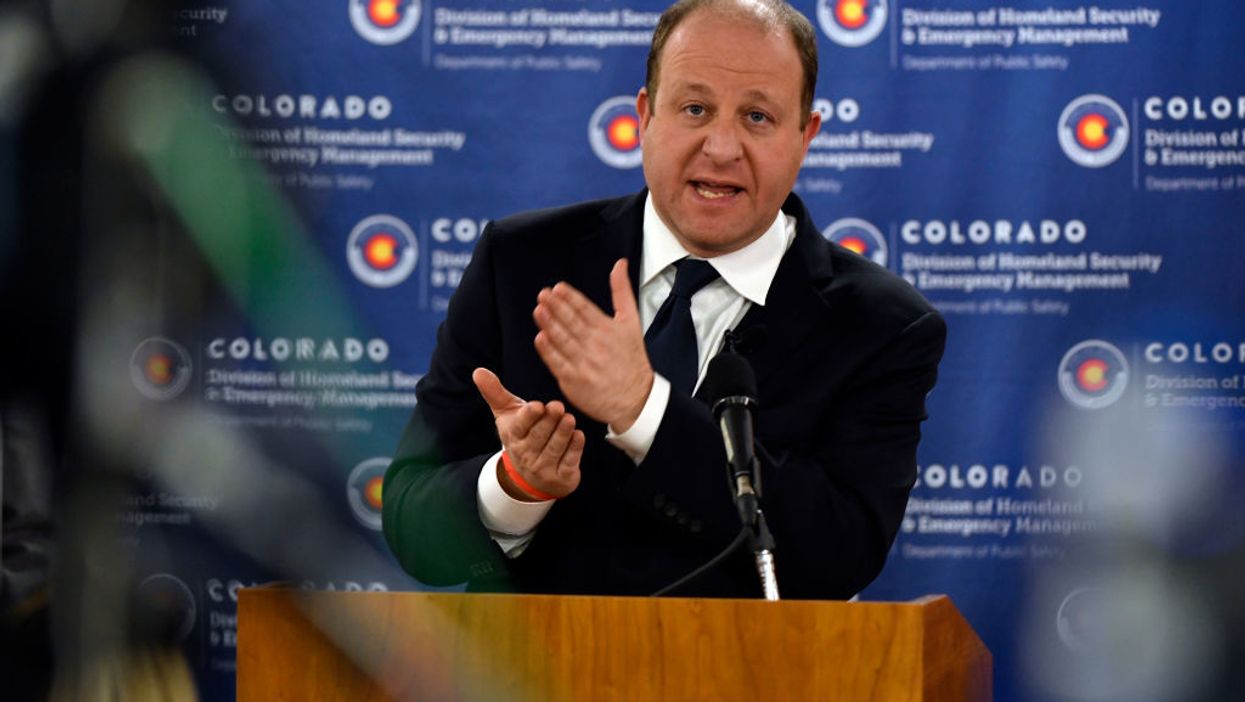
Eric Lutzens/MediaNews Group/The Denver Post via Getty Images

'These are deaths that should not be politicized'
Colorado lowered the state's COVID-19 death toll by nearly 300 on Friday. Then on Sunday, the governor of Colorado questioned the way the Centers for Disease Control and Prevention classifies coronavirus deaths.
The Colorado Department of Public Health and Environment announced on Friday that the state would significantly change the way it counts COVID-19 deaths. As a result of the new policy, Colorado lowered the state's coronavirus deaths from 1,150 to 878.
"Beginning May 15, the department began reporting the number of deaths in two ways: The number of deaths among people with COVID-19. This represents the total number of deaths reported among people who have COVID-19, but COVID-19 may not have been the cause of death listed on the death certificate," the Colorado Department of Public Health and Environment said on its website.
The second way that the CDPHE will track deaths is: "The number of deaths among people who died from COVID-19. This represents the total number of people whose death was attributed to COVID-19 as indicated on a death certificate."
"We have been reporting at the state, deaths among people who had COVID-19 at the time of death and the cause of that death may or may not have been COVID-19," Dr. Eric France, CDPHE's chief medical officer told KDVR-TV.
France said there were instances when someone's death was classified as a COVID-19 death, but that was not the primary reason why the person died. One story, in particular, grabbed national headlines last week, where a 35-year-old Colorado man died due to acute alcohol poisoning. However, the Montezuma County coroner declared the cause of death to be from coronavirus.
The office of Gov. Jared Polis (D) released a statement about the changes:
The Governor applauds efforts to ensure that we are as transparent as possible with our reporting and therefore fully supports efforts by CDPHE to specify how many deaths are specifically due to COVID-19 and not just specific to CDC guidelines that include people who died with coronavirus but not necessarily from it. What we are seeing today is a reflection of that. It's important to note that number of deaths due to COVID-19 includes data through May 9 and does not reflect cases since then. State epidemiologists believe that once the data is up to date then the number will, unfortunately, be higher.
Polis stood by his state's decision to alter the method Colorado counts COVID-19 deaths in an interview on "Fox News Sunday."
"The CDC criteria include anybody who has died with COVID-19, but what the people of Colorado and the people of the country want to know is how many people died of COVID-19," Polis said.
Polis added, "Of course there's likely cases that should be counted as COVID deaths that people have missed, doctors have missed."
"No, in fact, one of the reasons we wanted to make sure we reported it out in a better way was to inspire confidence so that it wouldn't be politicized," Polis said. "These are deaths that should not be politicized."
Dr. Deborah Birx, who is the White House coronavirus task force response coordinator, reportedly said, "There is nothing from the CDC that I can trust."
"Birx and others were frustrated with the CDC's antiquated system for tracking virus data, which they worried was inflating some statistics — such as mortality rate and case count — by as much as 25 percent, according to four people present for the discussion or later briefed on it. Two senior administration officials said the discussion was not heated," The Washington Post reported.
Polis also talked about opening up schools this year and how it is "just not going to look like any other school year."
"Schools need to function, they are going to function. It's also going to be somewhat of a hybrid environment, meaning there might be times during the year there's an outbreak at a school that it has to convert to online for a period of weeks until it's reasonably safe to return to school," Polis told host Chris Wallace. "But by and large, I think, across our state and across our nation, kids are going to return to school in the fall, it's just not going to look like any other school year."